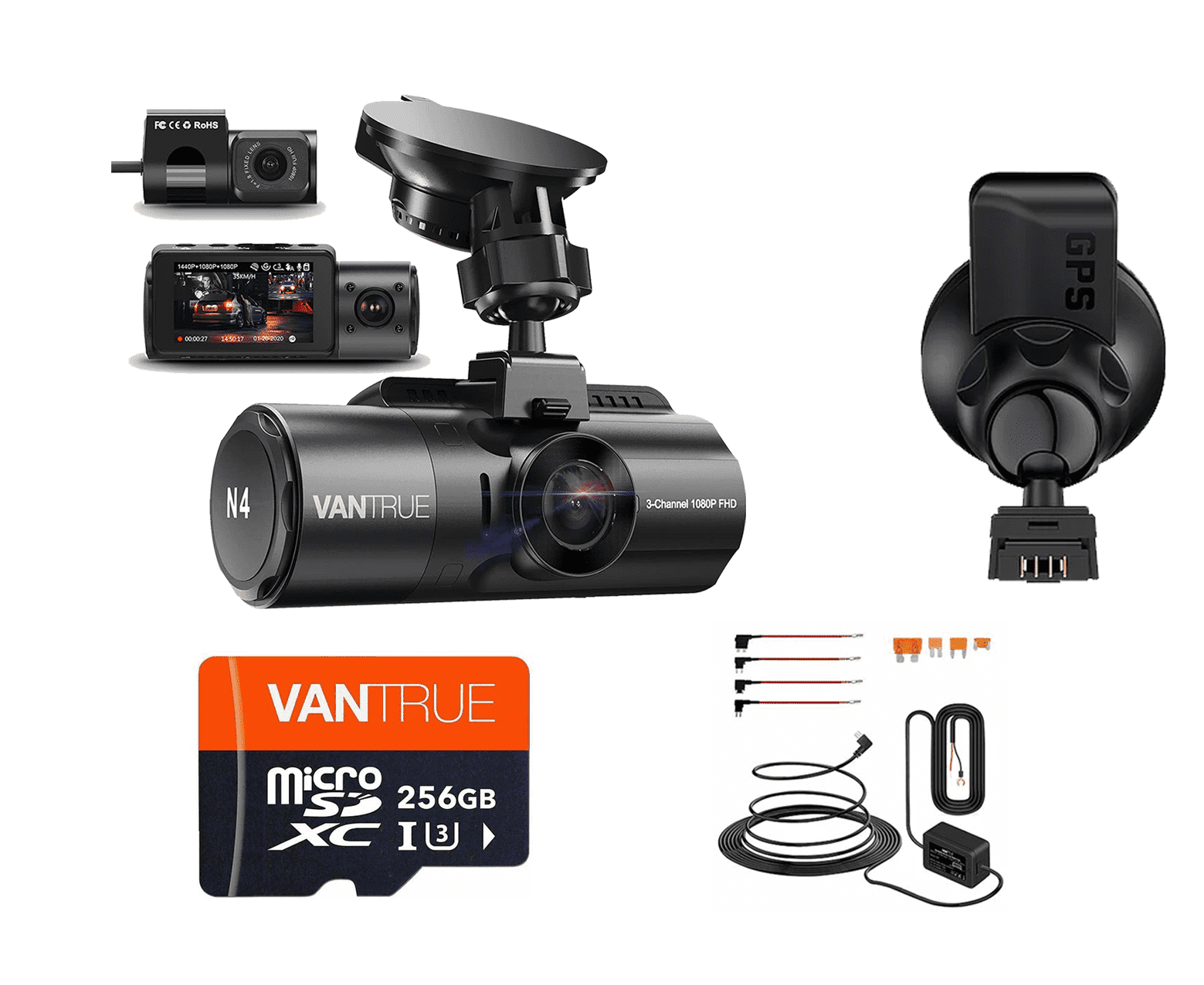Dashcams promise not only clear documentation of traffic accidents, but also increased safety on the roads. But while the benefits are obvious, there are also serious concerns about data protection and privacy. In this post, we take a look at the debate surrounding the use of dashcams: are they an indispensable piece of evidence or do they pose a risk to our personal data?
What is a dashcam?
Dashcams are compact video cameras that are usually attached to the dashboard or windshield of a car. They continuously record traffic while driving and save the recordings on an internal memory card. Once the storage space is full or a set period of time has elapsed, the older videos are automatically overwritten. Recording begins automatically as soon as the car is started and ends when the engine is turned off. Modern car cameras also offer features such as night vision, GPS tracking to record driving routes and speeds, and a parking mode that activates the camera when the vehicle is parked and detects movement to record possible damage or vandalism.
What is the use of dashcam recordings?
How you use your dashcam is ultimately up to you. For example, you can use it to take beautiful landscape photos on vacation or to analyze your driving style, for example with a lane assistant. The main reason for many buyers, however, is that the dashcam recordings can serve as proof of one's own innocence in the event of an accident. But are dashcam recordings even allowed as evidence?
Do dashcam recordings violate data protection?
The answer to the question of whether dashcams violate data protection is complex. In principle, video recordings are subject to the provisions of the General Data Protection Regulation (GDPR). This stipulates that personal data may only be processed with the consent of the persons concerned. This can be difficult with dashcams, which often film without the knowledge of other road users. In particular, random and continuous recordings that are not limited to specific events such as accidents can be considered inadmissible and thus violate data protection. If people or license plates are recognizable in these recordings, this also represents a clear violation of the right to informational self-determination of the persons concerned. Storing this data can also raise legal problems in this context.
In order to comply with data protection regulations, dashcams should therefore be set so that they only become active in the event of an accident or danger (vandalism or theft). It is also advisable to automatically delete the recordings after a certain period of time. This procedure not only protects the privacy of other road users, but also helps to avoid high fines. This allows drivers to enjoy the benefits of dashcams without coming into conflict with data protection regulations and potentially high fines.
Dashcams in Germany: These are the features dashcams should have
You can use a dashcam in traffic if there is a specific reason for doing so, such as an accident. But at the crucial moment, there is not much time to turn on the camera. But don't worry! Many modern dashcams have practical functions that help you in such situations. If you want to buy a dashcam, make sure that it has the following features:
- Loop function : This function ensures that the recordings are not saved permanently. Instead, the recordings are saved in short clips and in a continuous loop. When the SD card is full, the oldest recording is automatically overwritten. This means you always have enough storage space for new recordings.
- G-Sensor : To ensure that the recordings of an accident are not overwritten, an acceleration sensor, also called a G-sensor, is extremely important. This sensor detects sudden movements or decelerations that indicate a crash and automatically saves the corresponding video sequence.
- GPS and time stamp : GPS functionality and date and time recording are important to record the exact location of the accident and the time of the incident. This information can be very important in the event of a legal dispute.
Legal gray area: evidence in court
A ruling by the Federal Court of Justice (BGH) in 2018 found that dashcam recordings can be used as evidence in accident trials in certain cases, even if they are problematic in terms of data protection law (BGH, ruling of May 15, 2018 - VI ZR 233/17). This means that although the cameras violate the GDPR, they can still be relevant in a legal context. The reasoning: Those involved in accidents are obliged to provide information about themselves, their insurance and their driver's license anyway.
In an accident liability case, the dashcam recordings can be used after a careful balancing of interests. The data protection rights of the people filmed are weighed against the public interest in clarifying the course of events of the accident. This balancing is crucial for whether the recordings can be admitted in court and thus help to clarify liability.









